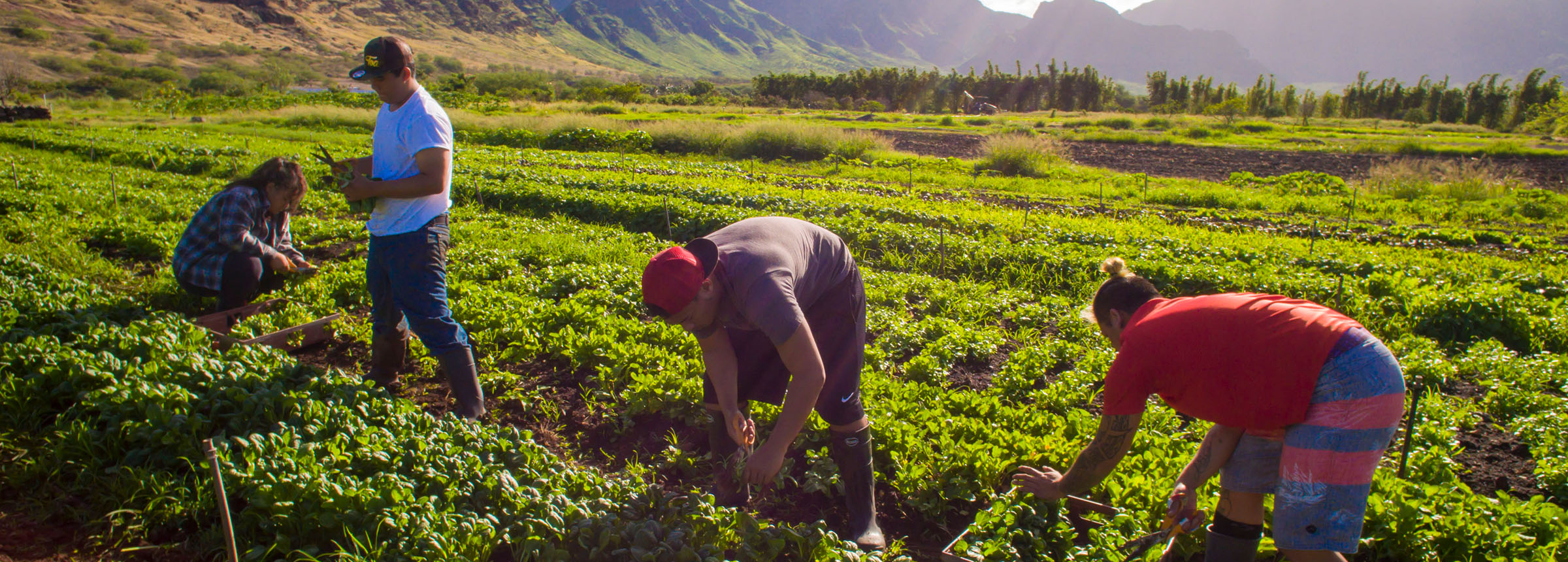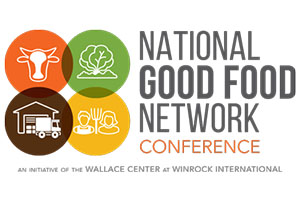
Shifting Power

Make Yourself Obsolete: Shifting Power from Non-Profit Leadership to Community Leadership
Wednesday March 11th, 2:15-3:45
Community empowerment happens when non-profits and funders step back and community-based projects thrive. Through facilitated dialogue and examples from successful Community Food Projects – including food hubs, community gardens and a farm-to-school program – attendees will create powerful design templates for shifting non-profit programs to community empowerment, leadership, and self-management.
Speakers: Miles Gordon, Principal, Kitchen Table Consulting, LLC, Jen Dalton, Founder and Principal, Kitchen Table Consulting
It’s How We Be: The Messy Stories of Building Relationships for Food Justice
Wednesday March 11th, 4-5:30pm
Trust and relationship is the work behind the work in food justice. Trust cannot be manufactured. True relationship is the result of time, connection, humility, and being in community with one another. The stories behind the relationships of the Food Justice Design Team in Durham, NC are the stories of how we have been learning together. Learning how equity work is individual, organizational, structural, and cultural. Learning how equity processes don’t make a difference if the culture is white supremacy culture. Learning that equity is not simply a box to be checked or a training to attend. This session will offer stories of stepping in it, honest confrontation, challenging conversations, strength, connections, and laughter. It’s the messy reality behind coming together to plan for an equitable food community.
Speakers: Jen Zuckerman, Director of Strategic Initiatives, Duke World Food Policy Center, Camryn Smith, Executive Director, Communities in Partnership, Gretchen Thompson, Senior Research Scientist, FHI 360
Dismantling White Supremacy in Farm & Food Systems Organizations
Thursday March 12th, 10:30-12
If we want to create an equitable food system, we must dismantle white supremacy throughout our organizations. In this session, you’ll hear from three white NGO leaders at different stages of integrating anti-racist practices and principles into their organizations and discuss how to bring this work into your organization. Note: this session is geared towards white people in white-led organizations, but all are welcome.
Speakers: Tracy Lerman, Executive Director, Northeast Sustainable Agriculture Working Group, Elizabeth Gabriel, Executive Director, Groundswell Center for Food and Farming, Rich Pirog, Director, Center for Regional Food Systems at Michigan State University
The Continuum of POC Leadership: How to Spark without Burning Out
Thursday March 12th, 2-3:30
This session will unpack the taxing experiences leaders of color face upon engaging in systems work, as well as the many challenges we encounter in shifting the power between those who traditionally determine its focus and direction. From generational burn-out, to gaslighting, performative funding practices, and more, we will identify the many burdens leaders of color must bear and share our model on uplifting communal support systems that foster perseverance through such systemic barriers. We will also explore strategies that uplift leaders of color, center community driven solutions, and speak to the benefits of ownership and self-sufficiency upon engaging with traditional systems leadership. This interactive dialogue builds on the experiences transparently shared between an intergenerational group of practitioners, each at different stages of leadership, to discuss challenges they’ve faced, lessons learned, and self-sufficient support practices they’ve developed.
Speakers: Devon Hamilton, Community Services Unlimited, Lydia Villanueva, Director/Founder of CASA del Llano, Qiana Mickie, Executive Director of Just Food
Using multi-stakeholder ownership to create systemic economic, social, and racial justice in the food system
Friday March 13th, 10-11:30
Attendees will learn about three existing multi-stakeholder organizations at various stages of maturity: Our Table Cooperative, Poppy’s Grocer, and FEED Sonoma. More specifically, we will profile the origin of the organization, the impact on the food system achieved, and the failures or remaining barriers inhibiting progress. Using these organizations as real-world case-studies, interactive breakout groups will explore specific economic, social, or racial justice challenges facing these organizations. The three organizations are located across the country and operate within the customer direct and wholesale channels of food and agriculture.
Speakers: Narendra Varma, Founder & Executive Director, Our Table Cooperative, Gianna Banducci, Cooperative Development Specialist, California Center for Cooperative Development, Jennifer Brodsky, Founder & CEO, Poppy’s Green Grocer
